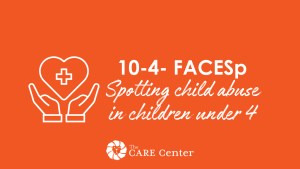The Ultimate Online Safety Toolkit for Caregivers: Empowering Kids in the Digital World
In today’s digitally interconnected world, where online dating, convenient shopping, and unlimited access to information are at our fingertips, it’s crucial not to overlook the inherent risks that come with the internet.
One such risk is the alarming trend of groomers and abusers exploiting social media platforms to target children. Surprisingly, it’s the younger children who are most vulnerable to these threats. Even seemingly harmless applications like TikTok, Snapchat, and YouTube have unfortunately been misused as platforms to target unsuspecting children.
According to Thorn, “Young children are beginning to create SG-CSAM (Self-Generated Child Sexual Abuse Material). 21% of children aged 9-10 agreed that ‘It’s normal for people my ages to share nudes with each other.”
Unfortunately, abusers are not the only concern when it comes to social media. Many children find their mental health affected by it as well. Social media creates immense pressure on showcasing a perfect, beautiful and happy image.
Per the Child Mind institute, Stanford researchers are referring to this spectacle as “duck syndrome.” This alludes to how social media causes people to act like a duck swimming in water. While it looks as though it’s gliding over the surface of a lake, it’s actually trying to frantically stay afloat. The struggle, however, is invisible to everyone but the duck itself.
Stanford researchers equate this metaphor to the numerous children who are doing their best to keep up an image of what social media deems ideal despite struggling internally to stay afloat. The various standards of weight, height, features and even personality heavily weigh on young social media users resulting in alarming mental health issues.

Tips for safeguarding children on Social Media:
- Ensure your kids know perfection is not a necessary ideal, and emphasize failure is okay. Parents often hide failures from their children, but doing so results in your child feeling as though success is the only standard. To counteract this, it is best to talk to your children about your failures. Let them know it’s okay to pick themselves up and try again.
- Involve yourself in your kids’ favorite apps and trends. Sit down with them and ask them to show you how to use TikTok or Snapchat. You can even recreate trending videos and posts with them. Not only is this a memorable bonding experience, but it also allows you to learn details about the apps your child is using.
- Have a family digital detox. Plan a day with your family to unplug from all devices or at least just social media. You can go for a picnic or even spend the day playing games, but doing this as a family will allow you to lead by example.
- Be your child’s safe person. Do your best to create an environment where conversation is open and comfortable. This allows your child to come to you with any problems, concerns or even fears. Creating a relationship that provides security and comfort will keep them from trying to find those things in an online relationship.
- Discuss pictures versus reality. Make it a point to have a conversation about editing, filters and even cropped photos. Talk to your kids about how the larger questions. The reason a photo was posted, how the photo makes them feel and/or why they need to keep track of interactions on a post. Create a space to have these conversations allowing the social media mask to be removed.
- Have a conversation about sharing content and predators online. It is important to have a discussion with your kids about what they are sharing and seeing online. Once content is put out onto the internet, it’s there to stay. Let your child know the importance of never sharing abuse content. Not only is it illegal but it causes the abuse to continue.
Take action today to contribute to the safety of your loved ones. Begin implementing these changes now to play your part in safeguarding those who matter most. If you have any other situations you would like us to address or discuss on our blog, please leave a comment below or reach out to us via social media. Don’t forget to sign up for The Care Center’s newsletter to stay updated on our latest blog posts!
Source: www.thorn.org



